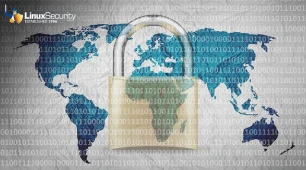
As an increasing number of users and businesses worldwide make the switch to Linux, there are clearly some compelling arguments for using Linux instead of the Windows operating system. Reasons to consider making the switch to Linux include stability and security, customization and flexibility, open-source nature, cost-effectiveness, and community support.
By exploring these points, we aim to provide insights for Linux admins, infosec professionals, internet security enthusiasts, and sysadmins on the long-term implications of adopting Linux as a primary operating system.
Why Should I Choose Linux Over Windows?
One of the standout features of Linux is its stability and security. The open-source nature of Linux allows for continuous scrutiny by a large community of developers. This collaborative effort results in the rapid identification and resolution of security vulnerabilities. This aspect raises a crucial question for security practitioners: Does the transparency of the open-source model truly lead to more secure systems, or does it increase the likelihood of vulnerabilities being exploited? In the context of recent cyber threats, such as supply chain attacks, there is a need to delve deeper into the potential risks associated with open-source software.
 The customization and flexibility offered by Linux distributions is another critical factor to consider. The myriad of options available allows users to tailor their operating system to meet their specific needs. This brings up the question of whether the plethora of choices could potentially lead to fragmentation within the Linux community. While the diversity of Linux distributions is often seen as a strength, it can also pose challenges regarding compatibility, support, and software availability. As security practitioners, it is essential to consider the long-term consequences of this customization aspect, ensuring that systems remain stable and secure despite the variations among different Linux distributions.
The customization and flexibility offered by Linux distributions is another critical factor to consider. The myriad of options available allows users to tailor their operating system to meet their specific needs. This brings up the question of whether the plethora of choices could potentially lead to fragmentation within the Linux community. While the diversity of Linux distributions is often seen as a strength, it can also pose challenges regarding compatibility, support, and software availability. As security practitioners, it is essential to consider the long-term consequences of this customization aspect, ensuring that systems remain stable and secure despite the variations among different Linux distributions.
Linux distributions are highly cost-effective, as they are usually free of charge. However, it is crucial to address the implications of choosing a free and open-source alternative like Linux over a proprietary system like Windows. While the upfront cost savings are evident, it is essential to assess the long-term costs of maintenance, support, and training for Linux distributions. Furthermore, the potential impact on software licensing agreements should not be overlooked when considering migrating from Windows to Linux. Security practitioners must weigh the financial advantages against the potential challenges and costs associated with transitioning to and maintaining a Linux environment.
Additionally, the community support and documentation provided in the Linux ecosystem are worth highlighting. The extensive resources available through forums, documentation, and online communities ensure that users can find solutions to any issues they encounter.
Our Final Thoughts on the Benefits of Using Linux
In conclusion, there are many compelling arguments for considering Linux as an alternative to the Windows operating system. However, it is crucial for Linux admins, infosec professionals, internet security enthusiasts, and sysadmins to analyze the implications of such a transition critically. Security practitioners must evaluate the trade-offs involved with Linux's open-source nature, customization options, cost-effectiveness, and community support. By maintaining a balanced approach, security practitioners can make informed decisions about adopting Linux, ensuring the long-term stability, security, and success of their systems.


















